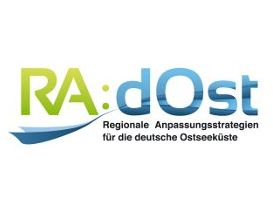US-German Workshop: Obstacles to Adapting to Climate Change – a Discussion with Practitioners
- Presentation
- Date
-
- Location
- Annapolis, Maryland, United States
- Speech
A workshop co-organized by Ecologic Institute in Annapolis, Maryland investigated how the public's view of climate change can influence local government's ability to adapt to climate change. It was a part of the exchange activities of the RADOST project (Regional Adaptation Strategies for the German Baltic Sea Coast) with partner regions in the USA. The examples provided at the workshop focused on the coastal zones of the US state of Maryland and the German federal state of Schleswig-Holstein.
Maryland and the German state of Schleswig-Holstein have a common feature in that both have two coasts, one to the open sea and one to an enclosed sea, making comparison and cooperation between the two states particularly promising. The interactive workshop held on 7 March 2012 served to highlight research and projects addressing coastal hazard adaptation and planning in Maryland's coastal zone and on the coasts of the Baltic Sea and North Sea in Germany; to share ideas and lessons learned; to discuss best practices; and to share products and outcomes that might be applicable to - or replicable in - other coastal communities. Twenty-one participants representing universities and local, state and federal governments from Maryland and Germany attended the event, which was hosted by the Maryland Department of Natural Resources and University of Maryland Center for Environmental Science (UMCES) at the National Socio-Environmental Synthesis Center (SESYNC) in Annapolis, MD.
This workshop was a part of the larger research project RADOST which is led by Ecologic Institute. Together with Duke University's Nicholas School of the Environment, Ecologic Institute is investigating culturally framed adaptive management concepts in the international RADOST partner regions of the Chesapeake Bay and the Pamlico Sound in North Carolina.
The Obstacles to Adapting to Climate Change workshop featured the following:
- An introduction by Dr. William Dennison, of UMCES, describing the role that UMCES and SESYNC have played in researching and communicating climate science.
- Dr. Michael Orbach and Dr. Grit Martinez, of Duke University's Nicholas School of the Environment, introduced the research project they are coordinating that investigates how differences in public perceptions of climate change influence local government's ability to adapt in Maryland, North Carolina, and Germany. Additionally, using a web-based live-polling system, they conducted a survey to investigate local perceptions of climate change and the perceived role of local and state government in climate change adaptation and planning.
- A presentation on the bio-physical effects of sea-level rise and storm surge by Dr. Ming Li, of UMCES, describing his research on the Chesapeake Inundation Prediction System and how it could be used by local governments to better inform management decisions.
- Debbie Herr Cornwell, Assistant Director of Planning at the Caroline County Department of Planning and Codes, gave a presentation detailing recent updates to the county's storm water and floodplain management ordinances that increased the county's resilience to future flood levels. She also described the intensive public outreach campaign undertaken prior to updating the ordinances to educate the public of the risks and increase support for the updates.
- Dr. Michael Paolisso, of the University of Maryland, highlighted some of his research on the environmental justice aspects of climate change. As part of his research, Dr. Paolisso investigated how rural communities around the Chesapeake Bay perceive climate change and how their social construction can lead to a lack of input in public policy decisions concerning them.
- Dr. Jacobus Hofstede, from the Ministry of Agriculture, the Environment and Rural Areas of Schleswig-Holstein joined the workshop via a web-presentation to describe the coastal adaptation issues facing the Baltic and North Sea Coasts in Germany and discussed some of the management solutions being debated and utilized in different areas along the coastline.
- Dr. Grit Martinez elaborated on the RADOST project she manages in the Baltic Sea region and described how public perceptions of climate change influence adaptation efforts all around the Baltic Sea.
- Jeffrey Allenby, from the Department of Natural Resources and UMCES, described the CoastSmart Communities Initiative, a program that utilizes funding from the National Oceanic and Atmospheric Administration (NOAA) to provide local governments with the technical and financial support needed to implement coastal hazard planning at the county and municipal level. He also highlighted some new tools being developed that can help communicate coastal hazard and climate change risks to the public or can help local governments identify existing planning capacities and prioritize future adaptation efforts.
Throughout the day, the participants engaged each other to learn more about the research and planning that was being conducted around the state of Maryland and in the German regions of the Baltic and North Sea and how it could be utilized at the local level to better inform the decision making process.




